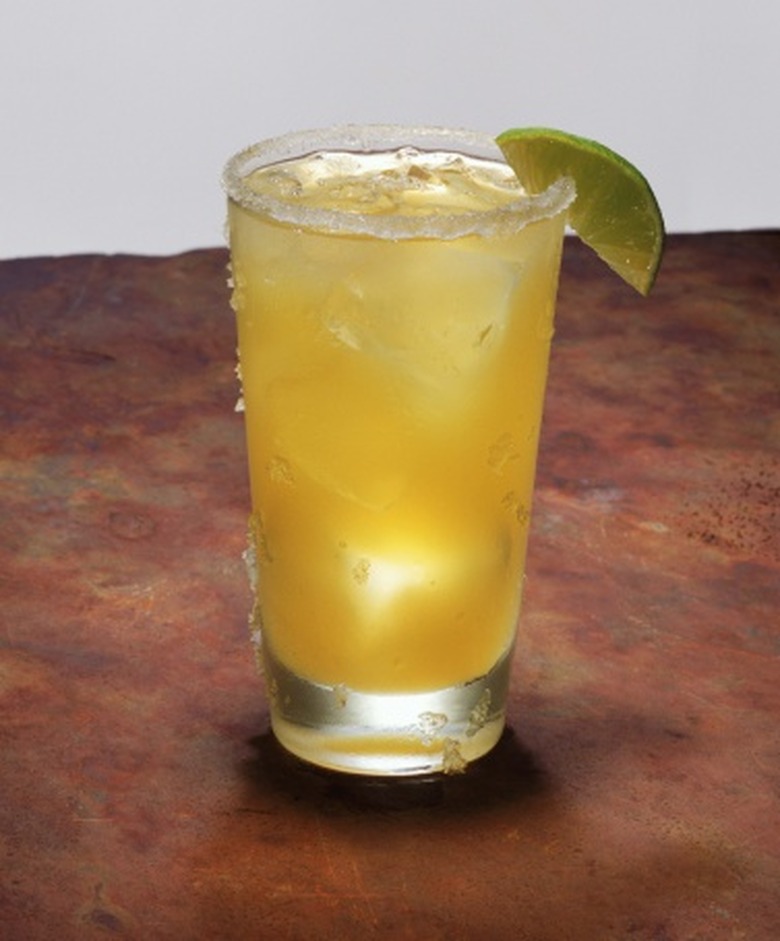Experiments With Salt And Sugar Ice Cubes
The rate at which an ice cube melts is generally a function of how much energy, or heat, is applied to the cube. However, other factors influence the rate at which ice melts. Minerals in the water prior to freezing can influence the atomic and molecular speed of melting. Two basic compounds that will affect this are sugar and salt.
Freezing Experiment
Freezing Experiment
A typical experiment to see how sugar and salt work in an ice cube involves freezing water containing the two. Creating equal measurements of salt and sugar, add the compounds to some ice cube trays. Pour the same amount of water in each cube tray holder and mix the sugar or salt as best as you can. Also, make sure you have a control in the experiment by having an ice cube tray with only water in each cube pocket. Put the ice trays in the freezer and wait until all trays are frozen. Take out each ice cube set (sugar, salt, and normal water) and start timing the rate at which each ice cube melts.
Chemistry Explanation
Chemistry Explanation
According to students at the Selah School District in the state of Washington, experiments with ice cubes containing salt and sugar should show that cubes with sugar and salt melt faster than cubes with only normal water. In fact, the ice cubes that contain sugar should melt faster than the cubes with salt. The reason is heat absorption. The salt or sugar in an ice cube absorbs the surrounding heat energy faster than frozen water. Because the salt and the sugar are absorbing this heat energy so quickly, water molecules are moving faster, resulting in a faster melting rate. This is part of the reason cities use salt to melt ice: the salt will absorb heat energy quicker and thereby speed melting.
Ice Cubes In Water
Ice Cubes In Water
Another experiment involves taking ice cubes and placing them in three different cups of water. One water cup should have normal tap water in it. However, the next cups should contain sugar and salt, respectively. Place the cubes in all three cups and time how long it takes them to melt. Unlike the previous experiment, the ice cube in normal water should melt quicker than the ice cubes in sugar or salt water. This is because salt water and sugar water are denser than normal water. The density of this water hinders the ice cube from effectively melting since any water that does melt stays on the top. With normal water, the cube melts and the water released dilutes into the surrounding liquid more effectively.
String Experiment
String Experiment
A common experiment with ice cubes calls for using a piece of string with salt. Place one end of the string over an ice cube and sprinkle a tiny amount of salt. The salt will melt the top layer of the cube, but because the it is still relatively cold, the liquefied water will refreeze. The result will be that the ice cube reforms around the string, allowing the person to pull the string and drag the cube along. Interestingly, sugar is not as effective, because sugar will melt the ice cube too fast for the ice to re-freeze.
Cite This Article
MLA
Fitzpatrick, Mark. "Experiments With Salt And Sugar Ice Cubes" sciencing.com, https://www.sciencing.com/experiments-salt-sugar-ice-cubes-8526160/. 24 April 2017.
APA
Fitzpatrick, Mark. (2017, April 24). Experiments With Salt And Sugar Ice Cubes. sciencing.com. Retrieved from https://www.sciencing.com/experiments-salt-sugar-ice-cubes-8526160/
Chicago
Fitzpatrick, Mark. Experiments With Salt And Sugar Ice Cubes last modified March 24, 2022. https://www.sciencing.com/experiments-salt-sugar-ice-cubes-8526160/
